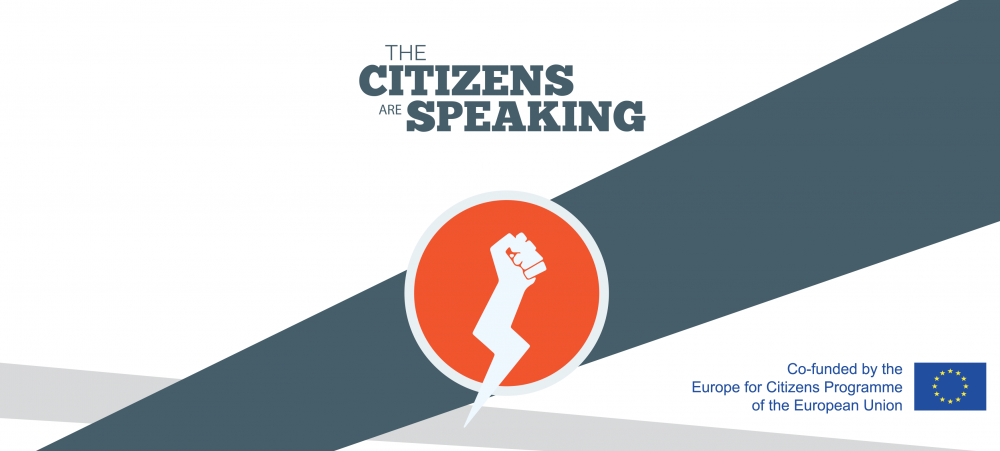THE EUROPEAN NEIGHBOURHOOD POLICY


We need a stronger Europe when it comes to foreign policy. With countries in our neighbourhood, we need to step up close cooperation, association and partnership to further strengthen our economic and political ties.
Article 8(1) of the Treaty on European Union states that “the Union shall develop a special relationship with neighbouring countries, aiming to establish an area of prosperity and good neighbourliness, founded on the values of the Union and characterised by close and peaceful relations based on cooperation“.
The European Neighbourhood Policy (ENP) was designed in 2003 (Communication ‘Wider Europe’1) to develop closer relations between the EU and its neighbouring countries including by giving the opportunity of closer economic integration with the EU and the prospect of increased access to the EU’s Internal Market. The plan was for integration to be progressive, through the implementation of challenging political, economic and institutional reforms, and a commitment to common values.
Over the past ten years, there have been significant political developments in the neighbourhood. Today’s neighbourhood is less stable than it was ten years ago. For example, in the East, growing challenges to a number of Eastern Partnership countries, from the crisis in Georgia in 2008 to the on-going conflict in Ukraine, have been caused by an increasingly assertive Russian foreign policy, which has also resulted in exacerbating divisions between Russia and the EU. In the South, Syria has been afflicted by civil war since 2011 which has had a serious impact on its neighbours. Libya is currently a country in conflict. Over the past three years, Egypt has also undergone complex political change. Despite considerable efforts, the Middle East Peace Process is still stalled and there have been several outbreaks of hostilities, including in 2014 in Gaza. These events have served to increase the challenges faced by both the EU and its partners, aggravating economic and social pressures, irregular migration and refugee flows, security threats and leading to diverging aspirations.
The Joint Consultation Paper ‘Towards a New European Neighbourhood Policy’, adopted on 4 March 2015, outlines the major questions and issues that the EU and its partner countries are currently facing. Stakeholders are invited to react to this Paper, which launches a thorough consultation procedure on the ENP. Through focus groups, conferences and workshops, The Citizens are Speaking project has the capacity to consult and the opinions of EU citizens on this important paper.
For further reading:
The European Neighbourhood Instrument: http://www.enpi-info.eu/ENI
The European Neighbourhood Policy: http://eeas.europa.eu/enp/
SUPPORTING ARTICLE FROM THE GUARDIAN
Patrick Kingsley Migration correspondent- the Guardian
Friday 4 September 2015.
A well-rounded response to the crisis must encompass a rethinking of EU policy, economic investment in smuggling communities and fact-based debate
1) Establish a standard asylum procedure across Europe
The reason this summer’s migration crisis has slowly spread from the islands of Greece to the sports halls of Germany, via Austria’s motorways and Hungary’s train stations, is because some European countries treat refugees more humanely than others. As a result, refugees are aiming for the places that will give them the most stability. Sweden offers indefinite residence to Syrians, while other nations don’t, for instance, while some countries are faster at reuniting children with parents who have gone on ahead to seek asylum.
So the best way to ensure refugees don’t hop between European countries is not to build fences, which encourages more dangerous forms of smuggling, but to ensure that the asylum system in every EU state operates to the same high standards, gives refugees the same level of benefits and grants the same length of residency. A common policy would also ensure that refugees were distributed proportionally throughout the EU. As it is some countries, particularly Greece and Italy, share a disproportionately large of the burden of the crisis.
But such a move would be resisted by most European countries as many politicians believe it would cost them political capital at home.
2) Provide a safe and swift alternative to a meaningful number of refugees
When asked why they take such dangerous journeys to reach Europe, most refugees say it’s because they have no safer option. So one of the few things that would convince them to delay their sea crossing would be the realistic chance of reaching Europe through legal means. Syrians, Eritreans and Afghans form the vast bulk of those fleeing to Europe. The swift, managed resettlement of, say, 2 million people from those countries could therefore persuade many others to remain in transit countries until their applications are processed.
This would not stop the boats entirely, and it will not satisfy those who think that migration is a possibility to be averted rather than an inevitability to be mitigated. However, it would allow Europe to manage the crisis better by controlling the flow of refugees, and their destinations. It wouldn’t work unless EU members implement a common asylum policy, and unless a significant number of refugees are resettled rather than a token 10,000. If resettlement remains a luxury then irregular migration will remain the norm.
3) End the war in Syria
Many Syrians say they would never have left home in the first place if it hadn’t been for the war. So peace in Syria would be the surest way of curbing the number of Syrian refugees. However, it shouldn’t be regarded as a panacea. For a start, the situation inside the country is so complex, and involves so many parties, that it is not a realistic short-term possibility. And even if fighting was to formally stop, Syria’s post-war reckoning will not make the country a safe place for many returning citizens.
4) Give Syrians employment rights in Turkey
Some of the Syrians arriving in the Balkans this summer haven’t come directly from Syria. Instead they are among almost 2 million refugees who fled to Turkey at an earlier point in the war. Turkey has been more hospitable than most countries, but it is still not a place that where Syrians can settle for the long-term. Turkey does not grant Syrians work-permits except in special circumstances, which means they lack the right to employment – a right enshrined by the 1951 refugee convention. Giving Syrians more of a long-term future in Turkey, the country that houses the most Syrian refugees, might persuade some of them to stay there.
Similar tactics could be persuaded in other Arab states with high numbers of Syrian refugees. There are hundreds of thousands of Syrians in Jordan and Egypt, and 1.2 million in Lebanon, where one in four residents is a Syrian. In each of those three countries there are legal or de facto restrictions on where Syrians can work, live and learn. Lifting these would make a boat to Europe seem less of a necessity – as well as the reinstatement of certain cash handouts that the UN refugee agency scaled back earlier this year.
5) Persuade Gulf countries to take in more Syrians
Most Arab countries don’t allow entry to Syrians. Some of them have reasonable excuses – Lebanon’s refugee population is already a quarter of the country’s total. But the Gulf countries – Saudi Arabia, the UAE, Kuwait and Qatar – have less justification, not least because their support for various sides in the Syrian war is one of the reasons the conflict has lasted so long.
The Guardian has met some Syrians in the Balkans who led safe lives in the UAE for years but had to leave because their residencies were recently rescinded. If Europe has a moral duty to help Syrians, then the Gulf certainly does too.
6) Provide economic alternatives in smuggling communities
Realistically, it’s hard to end people smuggling because the demand for it is so high, as are their passengers’ extraordinary tolerance for danger. The EU has discussed targeting Libyan smuggling vessels, and arrests smugglers when they arrive in Italy. But for logistical and legal reasons the former would be very hard to do in practice, and the latter targets only low-level pawns rather than key players. Additionally, the web of smuggling networks that operates throughout north Africa and the Middle East, far from the shores of Libya and Turkey, is so complex and extensive that removing a few of its actors would achieve little.
The EU has pushed to make smuggling illegal in the parts of Africa where it is rampant – such as in Niger, the door to Libya from west Africa. But smuggling continues untrammelled because low-paid police take substantial kick-backs from the trade, and because there are no other major sources of income for locals.
What this suggests is that greater economic investment in smuggling communities, which would provide local people with an alternative to the smuggling trade, might be the best long-term policy. Smugglers in Zuwara, the main smuggling port in western Libya, have themselves made this argument.
7) End the war in Libya
Syrians have formed about two thirds of the refugees crossing to Greece from Turkey this year. But they are now only a tiny proportion of those leaving Libya for Italy, even though they were also the majority along that route in 2014. Despite this, the number of people leaving Libya remains at the same record levels as last year – indicating that solving the Syrian crisis will not stop migration more generally, since there are many other nationalities on the move.
While Libya remains locked in civil war, people smugglers will be able to work with impunity along its northern coasts and southern deserts – allowing desperate people fleeing war, dictatorship and poverty in countries like Eritrea, Somalia and Nigeria to reach the Mediterranean in record numbers. Returning a functional central government to Libya, which effectively now operates as a series of cantons, would help to block off the routes of migration through Libya, if not the desperation of its protagonists.
8) End repression and extremism in Eritrea and Afghanistan
Even if Libya was brought under control, and even if the Syrian war ended, the reasons many people flee other countries would remain. Eritrea and Afghanistan are two of the other main sources of the migration crisis, with citizens of both countries face brutal journeys over thousands of miles to reach Europe, and many die en route. While the former is locked in a North Korea-style dictatorship and the latter faces a resurgent Taliban and an emergent Isis, they are likely to keep producing refugees.
9) Increase development in west Africa
The vast majority of those reaching Europe this year are likely to be migrating because of war or repression, according to UN figures. But a significant minority, between 20% and 30%, are likely fleeing poverty rather than conflict, particularly from west Africa. These people are often disparagingly called “economic migrants”, undermining the legitimacy of their movement. But the fact that these people risk death by dehydration or ambush in the Sahara desert, or kidnap and forced labour in Libya, in the hope of one day reaching Europe by sea suggests that their motivations are not trivial.
Those interviewed on the route to Libya recently suggest that the prospect of benefits or government hand-outs in Europe comes low on their list of motives. Instead, they’re driven by the absence of any economic or professional prospects at home. Increased economic investment in their countries of origin would have to be part of any well-rounded response to the migration crisis.
10) Learn from precedent
After the Vietnam war, the west eventually welcomed 1.3 million refugees from Indochina. If such a large scale resettlement scheme has succeeded once, without collapsing social order, it can be achieved again. There are worries about refugees posing a threat to European society. But as the humanitarian response to Vietnam shows, a refugee influx in the low millions can be absorbed by a rich continent of more than 500 million, particularly if the process is managed well enough.
——————————————————————————————————————-
The Instability of the Middle East
The problem of the instability exists. The instability has to change but how? The people living in unstable regions in the neighbourhood areas have to find a compromise between their ideas about this world.
My idea from a philosophical prospective is that people living on this planet have to start thinking positive that we can find a compromise and we will find it.The participants in the conference Citizens are Speaking were discussing how humanity and cooperation are important.Some of the people in conflicts forget about cooperation between humans.The countries in the European Union and the other parts of the world have to start showing the countries where there are problems that cooperation between people is so important for a functional world. Stability has to start coming from outside the boarders when there is lack of stability in the country. The people involved in conflicts can learn how humanity is necessary for the future of this planet, that is the process of learning and we are learning from each other. If the EU is not stable, how can the EU help and teach others?
Most participants at the conference had the same idea that countries around the Middle East have to cooperate and take more refugees because they can stay not so far from their homes, they can go back home after the end of the war, they do not need change of climate and their habits when they are not living so far from their natural background. The European Union will support refugees in EU and outside of EU too.
The positive energy inside us is strong and can change the world. When all citizens living on earth will change their mind, we can save our planet all together. The planet where we all want to live! We are creating our behaviour, our future and who we really are.
At the moment is not just about the instability in the Middle East, it is about world instability. Saving humanity and the cooperation between us is the key.
This contribution is from Lenka Jezercakova (Slovakia) 3 November 2015

GERMANY BLASTS HARSH EU REFUGEE RULES AS ‘UNSUSTAINABLE’
Germany’s vice-chancellor and foreign minister slammed one of the cornerstones of EU migration policy as ‘unsustainable’ in comments published Thursday, jointly saying Europeans owed it ‘to the world’ to help migrants and refugees. Europe’s largest economy has gone on the offensive in recent days to push for a joint EU response to the biggest migration crisis to hit the continent since World War II, as it prepares to host a record 800,000 asylum-seekers this year.
‘Never before have so many people fled political persecution and war as today. Many of them are seeking refuge here with us in Europe,’ Vice-Chancellor Sigmar Gabriel and Foreign Minister Frank-Walter Steinmeier said in the French daily Le Figaro. ‘In view of the crises in our neighbourhood, we must assume that this could remain the case for years,’ they added in a comment piece also published in Italy’s Corriere della Sera newspaper. Germany announced this week that it would stop returning Syrian asylum-seekers to their first EU port of entry, as stipulated under the so-called Dublin Regulation that governs migration in the European Union.Under the regulation, the first EU country where an asylum-seeker arrives is usually required to process the claimant’s application, and if they move somewhere else, they can be returned to that first nation. In practice, this means countries on the EU’s borders like Greece or Italy are overwhelmed with applications as thousands arrive on their shores after a dangerous journey across the Mediterranean. ‘German citizens are helping to receive and integrate refugees into our society as never before,’ Gabriel and Steinmeier wrote. But ‘a state of affairs in which only a handful of member states shoulder the entire burden – as happens today – is just as unsustainable as a system which forces the countries on the EU’s outer border to take the strain alone. ‘We must therefore reform the Dublin Convention immediately, and find a way of creating binding and objective refugee quotas which take into account the ability of all member states to bear them.’They said the EU response had not met ‘the standards that Europe must set for itself.’ ‘We must guarantee a common European code of asylum, so that asylum status is valid throughout the EU and the conditions for receiving it are stable across member states.’
Read more: http://www.dailymail.co.uk/news/article-3213858/Migrant-death-toll-chicken-meat-truck-rises-70.html#ixzz3k7GK2OgT
Follow us: @MailOnline on Twitter | DailyMail on Facebook
LikeLike